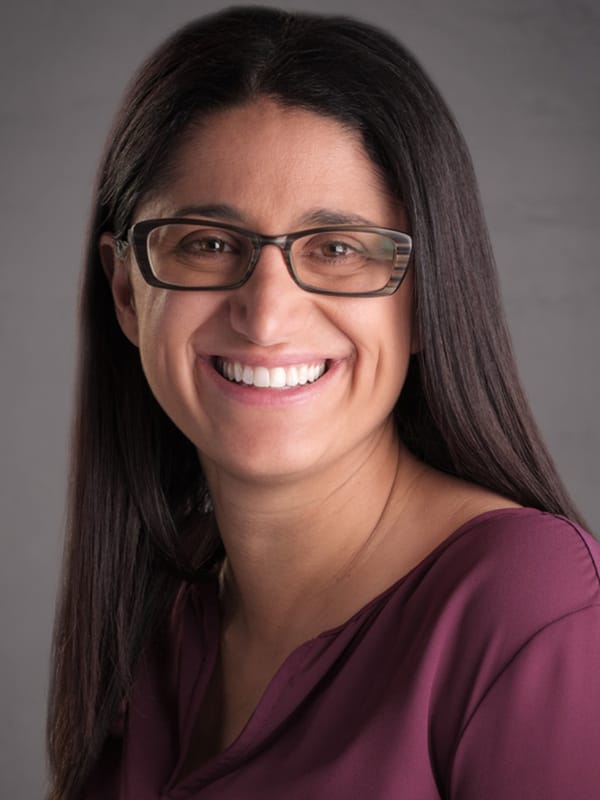
- Truth-Telling Prize Recipient, 2016
Dr. Mona Hanna-Attisha, who exposed the ongoing water crisis in Flint, Michigan, and kicked off a nationwide conversation about lead exposure, is the 2016 recipient of The Ridenhour Prize for Truth-Telling.
In an April 2014 bid to save money, an unelected emergency manager appointed by Michigan Governor Rick Snyder decided to switch the water supply from Lake Huron to the highly corrosive Flint River without adding the necessary corrosion control treatment. The city’s aging plumbing, it turned out, reacted poorly with the untreated water, which ate away at the pipes and caused lead — a potent neurotoxin that can damage the brains of children and cause developmental and behavioral problems — to seep into the city’s water supply for almost two years.
Soon after the switch, residents began complaining about the brown, stinking water flowing from their faucets, and they noted hair loss, skin rashes, and other health problems. State officials, however, insisted that Flint tap water was safe to use, so residents bathed, cooked, and drank contaminated water for months.
When “Dr. Mona,” as she’s affectionately known, discovered alarming research by Virginia Tech civil engineering professor Marc Edwards indicating that the untreated Flint water was 19 times more corrosive than water from Lake Huron, she tried finding data about blood-lead levels in Flint children, but ran into bureaucratic obstacles. As the Director of the Pediatric Residency Program at Hurley Children’s Hospital and Assistant Professor at Michigan State University College of Human Medicine, Dr. Mona knew that routinely drawn blood-lead level data existed for thousands of Flint-area children, especially those on Medicaid or who live in high-risk areas for lead exposure. So she turned to the Genesee County Health Department, which told her test results are kept in individual patient files and could not be easily analyzed, and she faced similar challenges getting blood lead levels from the state.
Undaunted, Dr. Mona decided to look into more than 3,000 files of children at the hospital where she worked — drawing comparisons before and after the water source switch — and discovered some startling findings.
Dr. Mona and her team found that the percentage of children with elevated levels of lead in their blood had nearly doubled, and in some neighborhoods even tripled. Given the public health emergency, she skipped the typical approach of publishing her findings in a medical journal and, instead, called an immediate press conference to alert the public. She told the press that her team “had an ethical, moral, and professional responsibility to alert our community about this crisis.”
Instead of rewarding her efforts, or giving consideration to her findings, the state of Michigan tried discrediting Dr. Mona. Her critics casually dismissed her research — claiming the figures did not match the state’s numbers — and publicly called Dr. Mona an “unfortunate researcher” who was “causing near hysteria.”
Dr. Mona described the state’s pushback as “emotionally jarring.”
“When [a] state with a team of 50 epidemiologists tells you you’re wrong, how can you not second-guess yourself?” she said.
But Dr. Mona and her team had meticulously checked their data and stood by their findings. The public outcry and national media attention forced the state to eventually go back and check its numbers. When it did, they discovered that Dr. Mona and her team were right. Within days, state and city officials held a press conference to address the toxic water, culminating in January’s state of emergency declarations by both Michigan Governor Snyder and President Obama.
Called a “true hero” by MSNBC’s Rachel Maddow, Dr. Mona now leads a new initiative by Michigan State University and Hurley Children’s Hospital to research, monitor, and mitigate the impact of lead in Flint’s drinking water on more than 27,000 children. She and her colleagues have also established the Flint Child Health & Development Fund to collect donations for Flint children’s long-term needs.
The Ridenhour Prize for Truth-Telling selection committee called Dr. Mona “a very deserving recipient of this year’s award for fearlessly and relentlessly speaking truth to power in order to promote the public health and safety of her community.”
Upon learning she will receive the 2016 Ridenhour Prize for Truth-Telling, Dr. Mona said, “I am honored and humbled. It has been said that courage is not the absence of fear but instead the judgment that fear is not as important as integrity. Yes, I had fear when I released my findings that Flint kids were drinking lead-laced water, and I was afraid when the State of Michigan attacked our research. But the honest truth is that I had no choice. I was doing my job as a pediatrician and my integrity, my moral compass and my training demanded I do exactly what I did and what I continue to do for the kids of Flint.”
Dr. Mona Hanna-Attisha, the daughter of Iraqi immigrants, has long been active in her community — in high school, she helped shut down a trash-burning incinerator. She majored in environmental health at the University of Michigan and received her medical degree from Michigan State University College of Human Medicine. She lives in Oakland County with her husband, also a pediatrician, and their two daughters.
More 2016 Prize Winners
One Bold Move, Countless Lives: Empowering Humanity, Changing the World.


